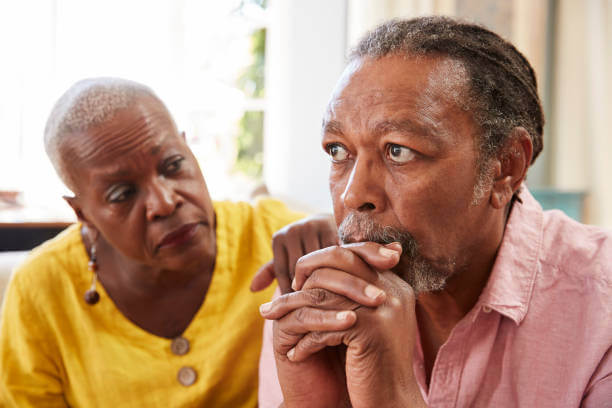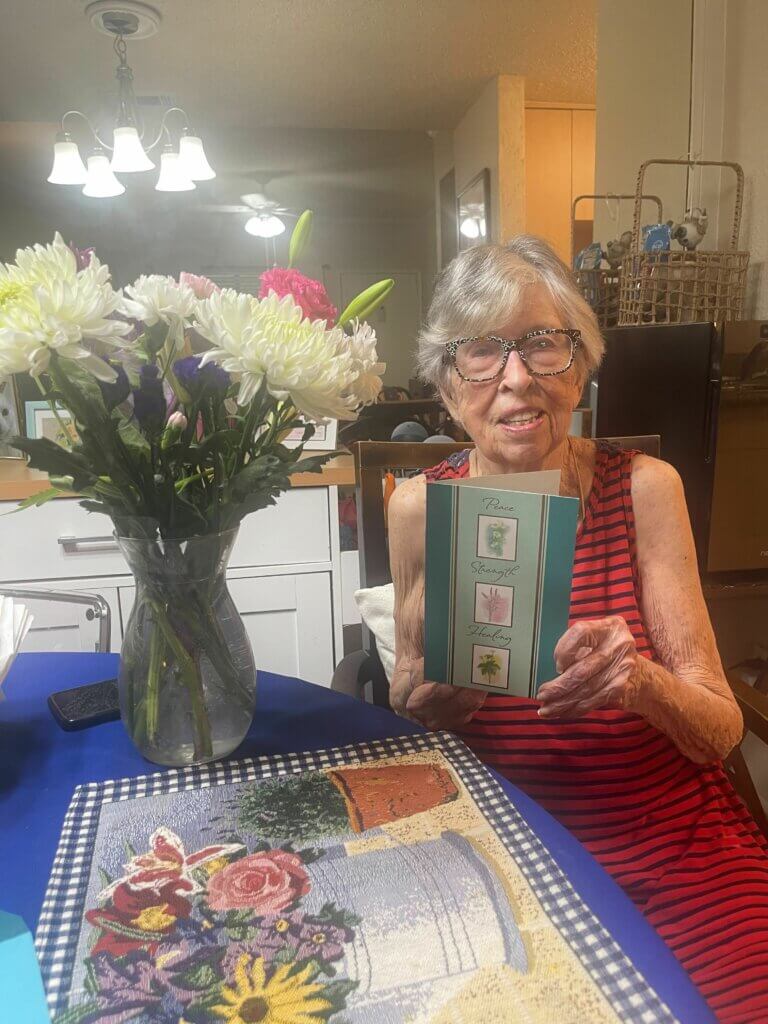Explore the relationship between grief and depression in the elderly and learn how to support them.
Understanding Elderly Grief: A Complex Emotional Journey
Grief is a complex emotional journey that individuals go through after experiencing a significant loss. It is a natural response to the death of a loved one, but it can also be triggered by other losses such as the end of a relationship, the loss of a job, or a decline in health. Grief is a deeply personal experience and can vary greatly from person to person.
During the grieving process, individuals may experience a wide range of emotions, including sadness, anger, guilt, and confusion. These emotions can be intense and overwhelming, and it is important to allow yourself or your loved one to feel and express them.
Grief is not a linear process and does not have a set timeline. It can come in waves, with good days and bad days. It is important to be patient and understanding with yourself or your loved one as they navigate through their grief.
Learn how to identify signs of elderly depression in your loved ones, and discover ways to support them.
Differentiating Elderly Grief and Depression
While grief and depression can share similar symptoms, it is important to differentiate between the two. Grief is a natural response to loss, while depression is a mental health disorder.
One key difference between grief and depression is that grief is often accompanied by feelings of sadness and loss, whereas depression is characterized by persistent feelings of sadness, hopelessness, and a loss of interest or pleasure in activities.
In elderly individuals, grief and depression can be especially challenging to distinguish, as they may be experiencing multiple losses, such as the death of friends or family members, physical decline, or changes in their social support network. It is important to pay attention to any changes in mood, behavior, or physical health that may indicate depression in a grieving loved one.
Recognizing Signs of Depression in Grieving Loved Ones
Recognizing signs of depression in grieving loved ones is crucial, as it can help ensure they receive the support and treatment they need. Some common signs of depression in elderly individuals include persistent feelings of sadness, hopelessness, or worthlessness, a loss of interest or pleasure in activities, changes in appetite or sleep patterns, difficulty concentrating or making decisions, and thoughts of death or suicide.
It is important to note that experiencing some of these symptoms does not necessarily mean that a person is clinically depressed, as grief can also manifest in similar ways. However, if these symptoms persist for an extended period of time and significantly interfere with daily functioning, it may be indicative of depression and professional help should be sought.
Supporting Grieving Loved Ones: Strategies and Interventions
Supporting a grieving loved one is essential in helping them navigate through their grief. Here are some strategies and interventions that can be helpful:
1. Offer a listening ear: Provide a safe space for your loved one to express their feelings and emotions. Be an active listener and avoid judgment or trying to fix their pain.
2. Validate their feelings: Let your loved one know that their feelings are valid and normal. Avoid telling them to ‘get over it’ or ‘move on,’ as grief is a process that takes time.
3. Provide practical support: Offer to help with daily tasks such as cooking, cleaning, or running errands. This can alleviate some of the stress and burden of daily responsibilities.
4. Encourage self-care: Remind your loved one to take care of themselves physically, emotionally, and mentally. Encourage them to engage in activities they enjoy and to prioritize their well-being.
5. Offer professional help: If you notice that your loved one is struggling with depression or their grief is significantly impacting their daily life, encourage them to seek professional help. Therapy or counseling can provide them with the support and tools they need to cope with their grief.
Remember, everyone grieves differently, so it is important to be patient and understanding. Each person’s journey through grief is unique.
Promoting Healing and Resilience in the Grieving Process
Promoting healing and resilience in the grieving process is crucial for individuals to find a sense of peace and move forward in their lives. Here are some strategies that can help:
1. Allow time for grieving: Understand that grief takes time and cannot be rushed. Encourage your loved one to allow themselves to feel their emotions and to take the time they need to heal.
2. Foster a supportive environment: Create a safe and supportive environment for your loved one to express their feelings. Encourage open communication and let them know that you are there for them.
3. Encourage healthy coping mechanisms: Help your loved one find healthy ways to cope with their grief, such as engaging in physical activity, journaling, or joining a support group. Encourage them to avoid unhealthy coping mechanisms, such as excessive alcohol or drug use.
4. Honor the memory of the loved one: Encourage your loved one to find meaningful ways to honor the memory of the person they have lost. This can include creating a memory box, planting a tree, or participating in a memorial event.
5. Seek support for yourself: Supporting a grieving loved one can be emotionally challenging. It is important to seek support for yourself as well. Consider joining a support group or talking to a therapist to help you navigate your own emotions and provide the best support possible for your loved one.
Remember, healing from grief is a personal journey, and it is important to respect and honor each individual’s unique process.
Contact us at 832-371-6600 for a free consultation to share the challenges you’re facing, and to learn how our personalized home care services can help you.
Home Matters Caregiving proudly serves the Houston Metro area providing care for seniors wherever they call home.












